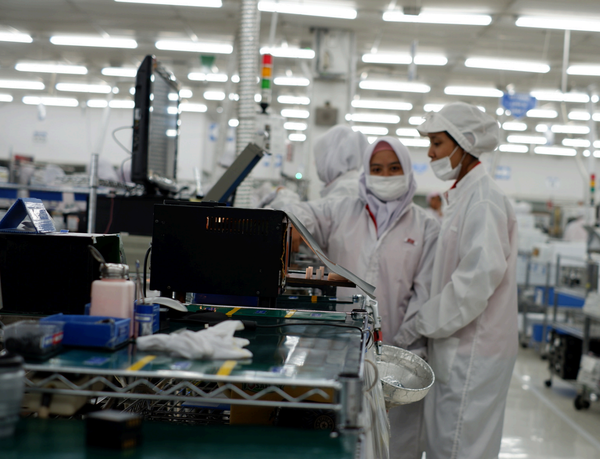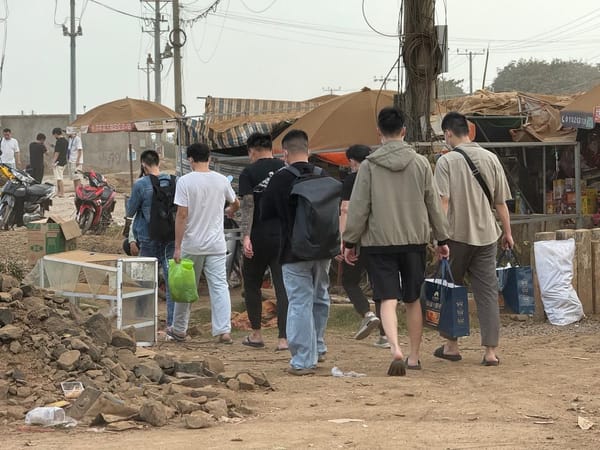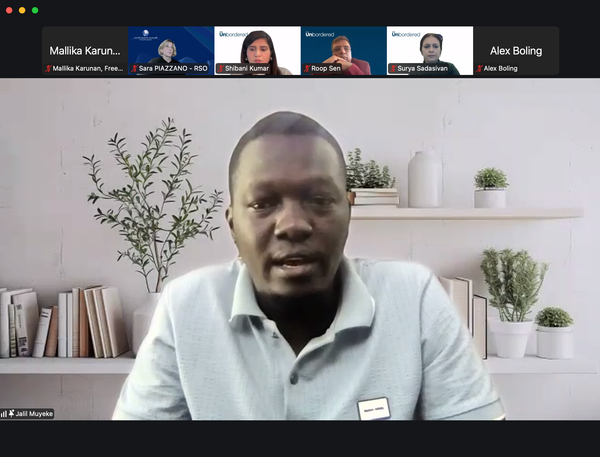Kenyan CSOs form partnerships to rehabilitate survivors of forced criminality
HAART Kenya highlights the need for multi-agency support for scam-compound survivors, the U.S. sanctions the armed group behind one of Myanmar’s trafficking networks, and Walk Free raises concerns over human rights budget cuts.

Nairobi-based organization Awareness Against Human Trafficking (HAART) Kenya is helping to repatriate Kenyan survivors from online scamming compounds in Myanmar, working in partnership with a team of stakeholders including civil society groups, the Kenyan embassy in Thailand, survivors’ families, the Kenyan Government, law enforcement agencies, and Kenya Airways.
After 26 Kenyan survivors were repatriated in February, HAART continued to receive urgent pleas from the families of trafficked workers who were still held in camps following their rescue from cyber-scam centers, as well as from the survivors themselves. The gravity of the situation demanded swift action from the multi-agency team, which mobilized efforts to bring an additional 126 Kenyans home between the end of March and beginning of April. Their safe return brings the total number of Kenyans repatriated from cyber-scam operations in Myanmar to 152 so far this year.
In order to facilitate these repatriation efforts, HAART worked closely with civil society organizations (CSOs) on the ground at the Thai-Myanmar border, leveraging connections made through previous exchanges between members of the East and Horn of Africa Anti-Trafficking (EHAAT) Network and Freedom Collaborative’s Trafficking for Forced Criminality Response Working Group, which HAART joined last year. This collaborative approach highlights the value of cross-regional coordination based on trusted relationships in facilitating a smooth repatriation process for survivors, and serves as a model of effective practice for stakeholders and CSOs in other countries and contexts.
Following their arrival, the survivors were received at HAART’s shelter, where the recovery process began with initial therapy sessions. Recognizing the complexity and sensitivity of these cases, HAART also facilitated a joint process for victim statement collection and screening in collaboration with Kenya’s Directorate of Criminal Investigations’ Transnational Organized Crime Unit (TOCU) and the Counter-Trafficking in Persons Secretariat (CTiP), ensuring the survivors received both legal support and psychosocial care in a safe and dignified environment. As numbers increased, HAART adapted its approach and partnered with the Missionaries of Africa, who hosted survivors during the first days of their return. Together with the multi-agency team, the organizations facilitated screening and psychosocial support, and initiated recovery pathways.
Testimonies from survivors, including accounts of torture for failing to meet traffickers’ demands, such as electrocution and confinement in dark rooms, underscore the urgent need for holistic support systems tailored to victims of torture and efforts to reduce the risk of re-trafficking. HAART aims to provide comprehensive aftercare support based on survivors’ needs – as part of an integrated rehabilitation plan, survivors receive medical care, access to essentials such as food and shelter, and economic empowerment through skills training and livelihood support. These interventions are crucial in helping survivors rebuild their lives and reducing the risk of re-trafficking. Despite being crucial for survivors’ wellbeing and protection from further exploitation, aftercare services for returnees are not typically provided, making HAART’s efforts in this area particularly noteworthy.
However, with an increasing number of survivors to assist, providing comprehensive and tailored aftercare support remains a challenge for HAART, and financial limitations often restrict its ability to offer a full range of services. Greater funding in this area and others is urgently needed to allow the anti-trafficking sector to continue building an integrated response that would offer effective long-term solutions to prevent human trafficking, protect vulnerable populations, and disrupt the operations of criminal networks that rely on exploitation.
Here’s a round-up of other noteworthy news and initiatives:
Yesterday, the U.S. Treasury sanctioned Myanmar’s Karen National Army (KNA) and its leader, Saw Chit Thu, for running a transnational cyber-scam and human trafficking network that exploits trafficked individuals and targets U.S. citizens. Operating from the Thai-Myanmar border, the KNA profits from leasing land to scam operations, providing security, and enabling human rights abuses while maintaining ties to Myanmar’s military regime.
Walk Free has raised concerns that G20 governments are reducing funding for human rights initiatives, thereby increasing the risk of modern slavery for millions worldwide. These budget cuts threaten to reverse decades of progress in combating exploitation, as they undermine critical systems designed to protect vulnerable populations and hold perpetrators accountable. Sustained investment in human rights is essential to prevent a resurgence of forced labour, human trafficking, and other forms of modern slavery, it says.
A Republican proposal in the U.S. Congress threatens to eliminate funding for legal assistance for unaccompanied migrant children, a move advocates say would dismantle protections and put thousands of vulnerable children, including trafficking victims, at greater risk of abuse and exploitation. Legal aid groups warn the measure would reverse decades of progress and create severe barriers for children seeking safety in the United States, as the Government also considers imposing steep fees on minors and their sponsors.
A new report by Plan International and Save the Children finds that children migrating through Mexico are exposed to severe risks, including violence, family separation, and unsafe living conditions, particularly at the northern border. Many, especially unaccompanied girls, face increased vulnerability to human trafficking, exploitation, and abuse due to a lack of protection, education, and mental health support.
One month after an earthquake struck central Myanmar, local communities are still struggling to access basic aid, while the military junta is accused of hoarding emergency supplies and obstructing humanitarian efforts. Grassroots groups and international responders are stepping in, but access to affected areas remains severely restricted, with many survivors left without shelter, clean water, or medical care as monsoon season approaches.
On Wednesday, AWID is hosting a webinar to mark Labour Day and highlight the struggles of care workers in India, Lebanon, and Uganda. The event will explore the ways in which systemic discrimination, exploitative labour conditions, and shrinking resources undermine the rights and dignity of care workers, and will call for global solidarity and feminist labour justice.




